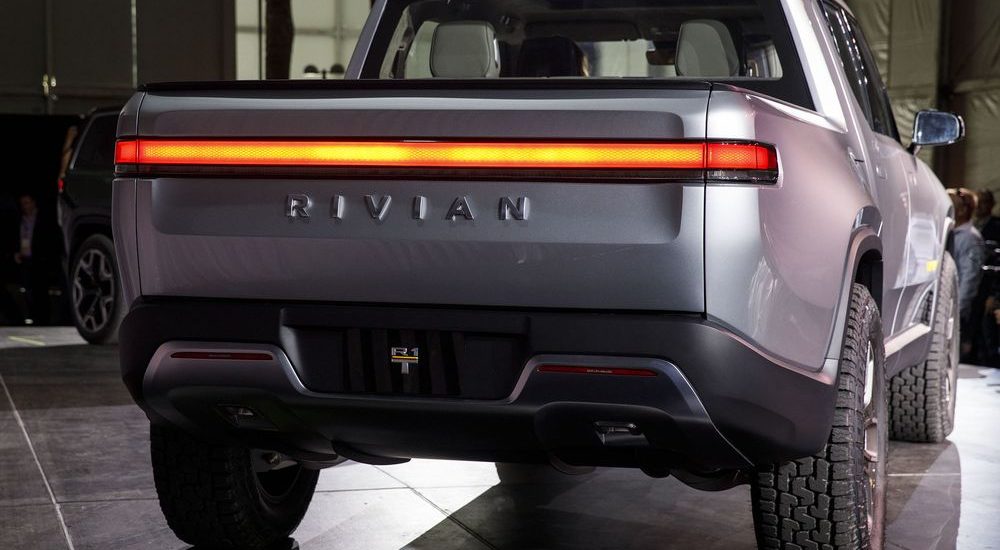
Amazon has ordered 100,000 all-electric delivery vans from American startup Rivian, recommending the retail giant means to own a greater amount of the logistics network that makes in excess of 5 billion deliveries every year. The move is a noteworthy boon to Rivian, a youthful, Tesla-like automaker that doesn’t plan to make its first-generation vehicle until late one year from now.
At its Michigan headquarters, Rivian is custom-designing the vans’ exterior, interior, suspension, and software for Amazon, a representative for the automaker says. Amazon will deploy the vans internationally, in left-and right-hand drive setups. Rivian will assemble them at its plant in Normal, Illinois; it means to deliver the first Amazon vans by 2021 and to deliver 10,000 by late 2022. In a press release, Amazon said it hopes to have the full fleet on the road by 2030. The automaker will likewise service the vans (however electric vehicles require less maintenance than their gas-and diesel-powered counterparts), and won’t offer the vehicles to different purchasers.
It’s not astonishing to see Rivian get into the delivery van business. The startup was established in 2009 with a focus on hybrids, and in 2011 it directed its concentration toward completely electric vehicles. As opposed to build up a whole platform for each new model—and present each vehicle type at a time, the manner in which Tesla went from the Roadster to the Model S to the Model X to the Model 3—Rivian has created one “skateboard” design, on which every one of its vehicles are based. That incorporates a 180-kWh battery pack, about double Tesla’s biggest offering and, as indicated by Rivian, useful for 450 miles of range, even in a heavy, not-so-aerodynamic vehicle.
Amazon’s vans will utilize a similar battery, powertrain, and electrical network as the two customer vehicles Rivian plans to begin working one year from now, the $69,000 R1T pickup truck and $72,500 R1S SUV. Plopping the body of a delivery van on a platform made for those huge vehicles ought to be simple enough. Furthermore, regardless of whether it’s not, it’d probably worth doing to secure such an enormous order from a high-profile client, as Rivian looks for a foothold in an industry popular for killing newcomers.
Notwithstanding for Amazon, this is a major ordeal. The organization recently ordered 20,000 vans from Daimler and around 2,000 vans from Michigan-based Spartan. Once Rivian adds its 100,000 to that pile, Amazon’s van fleet will roughly equal the 130,000 vehicles in UPS’s global fleet.
While Rivian is a little player, it’s a logical partner for Amazon, which led a $700 million investment round in Rivian not long ago and probably got a pleasant deal on its bulk order. Going electric could help mollify Amazon laborers upset by their employer’s role in the atmosphere emergency, and should spare the organization on fuel costs—recharging even a huge battery pack usually costs only a few dollars. Amazon CEO Jeff Bezos uncovered the order during an appearance Thursday morning concentrated on environmental change issues.
What’s not clear is the means by which these vans will fit into Amazon’s logistics network. Its ongoing exertion to take control of its delivery operations has created a hodgepodge of “Delivery Service Partners” (including previous workers paid $10,000 to stop and begin their own package-hauling businesses), “Flex” drivers, and manages delivery organizations like UPS. Amazon could give the Rivian vans to individual drivers (as it as of now does with certain vehicles), yet it would need to guarantee those drivers could recharge the batteries every night. EVs work particularly well in fleet operations, where they can come back to a similar recognize each evening (or at whatever point) to plug in. An Amazon representative declined to respond to inquiries concerning the amount it will pay per vehicle, and how it will consolidate the vans into its network.
Over the long run, Amazon could like to dispose of drivers altogether, and let the vans pilot themselves. Rivian is creating autonomous technology, however, it’s difficult to envision a little shop acing constantly tricky surface-road driving, in the assortment of conditions it takes to deliver packages everywhere throughout the world, at any point in the near future. Amazon likewise has an investment in Aurora, the self-driving developer run by Google veteran Chris Urmson, which could create a system that would work with Rivian’s vehicles.
Meanwhile, Amazon should keep on depending on people to move its stuff—yet at least on the ground, it can plan to do away with gasoline.
Disclaimer: The views, suggestions, and opinions expressed here are the sole responsibility of the experts. No A News Week journalist was involved in the writing and production of this article.
